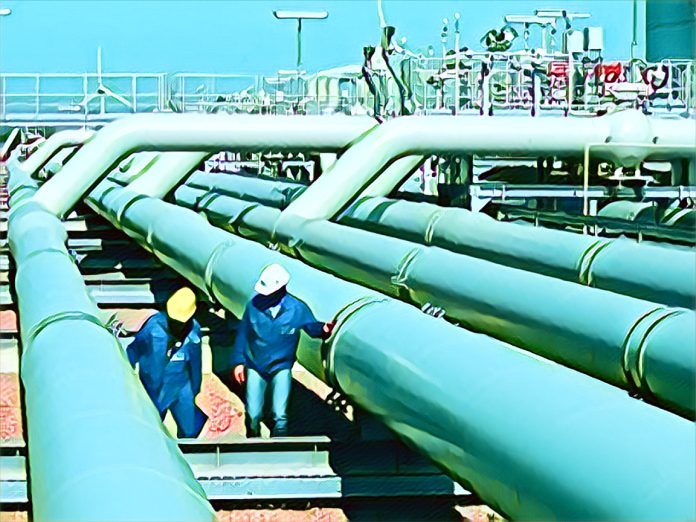KEY POINTS
- $26 billion gas pipeline to link Nigeria with Morocco and Europe.
- Expected to connect 13 African nations, creating economic growth.
- NNPC, ECOWAS, and Moroccan energy officials reaffirm commitment.
The $26 billion African Atlantic Gas Pipeline (AAGP) project is currently being advanced by the Federal Governments of Nigeria, Morocco, Mauritania, and ECOWAS.
The ECOWAS Inter-Ministerial Meeting on the Nigeria-Morocco Gas Pipeline Project brought together officials from 13 countries in Abuja with the goal of promoting economic growth and enhancing energy security throughout West Africa.
The proposal, which was initially mentioned in 2016 when King Mohammed VI of Morocco visited Nigeria, combines two significant pipeline projects: the Nigeria-Morocco Gas Pipeline, which is expected to cost $25 billion, and the $975 million West African Gas Pipeline Extension.
According to Punch, with an extra 1,700 kilometers of onshore pipeline in Morocco, the massive 5,300-kilometer pipeline intends to link Morocco and Nigeria before continuing on to Europe.
Economic integration and energy security
The project’s importance for the area was underlined by Mele Kyari, Group Chief Executive Officer of the Nigerian National Petroleum Company Limited (NNPC).
Kyari, who was accompanied by Olalekan Ogunleye, Executive Vice President of NNPC, emphasized how the project would improve energy security, generate jobs, and boost regional economies.
“The choices made here will determine how the African Atlantic gas project develops in the future, guaranteeing that it has a positive impact on the lives and economies of our people,” Ogunleye said.
However, all ECOWAS countries pledged to establish a linked energy market, underscoring the need of economic unity.
Nigeria’s gas resources are essential to this endeavor since they put the nation in a position to decrease gas flaring and diversify its export routes.
Driving sustainable development in Africa
Ekperikpe Ekpo, the Minister of State for Petroleum Resources (Gas), hailed the project’s revolutionary potential and referred to it as a “critical step” for Africa’s energy sustainability.
Moreover, he emphasized that the accords should improve access to natural gas, boost regional trade, and raise Africa’s share of the world gas market.
Laila Benali, Morocco’s Minister of Energy Transition, stated that the project will increase job creation and create new economic prospects. Sediko Douka, the ECOWAS Commissioner for Infrastructure, also emphasized the value of cooperation, stressing that each partner must play a part in making the project a success.
In addition, by delivering gas to Morocco, ECOWAS nations, and Europe, the AAGP would strengthen regional ties and establish Africa as a major player in the world energy market.
As important agreements proceed, the project is positioned as a cornerstone of Africa’s sustainable energy future.



